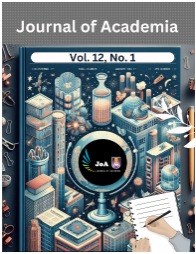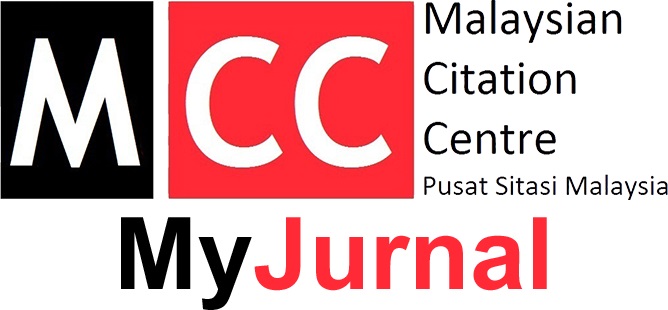FACTORS INFLUENCING COMPOSITE STOCK PRICE INDEX (IHSG) ON THE INDONESIA STOCK EXCHANGE MONTHLY ON 2019-2021
Keywords:
World Gold Prices, Dow Jones Index, Composite Stock Price Index (IHSG), Indonesia Stock ExchangeAbstract
The capital market is one of the dominant factors in determining a country's economy because the capital market can describe the ups and downs of a country's economy. One way is to look at the performance and development of a country's capital market by looking at the stock price index of a company listed on the country's stock exchange. One stock index that investors often forget when investing in Indonesia is the Composite Stock Price Index (IHSG). The population in this study was 36. The sampling technique was using a saturated sample which made the entire population as a sample. Hypothesis test results show that world gold prices have an influence on the monthly IHSG on the Indonesia Stock Exchange for the 2019-2021 period. This is because when the price of gold on the world market increases, people's interest in gold increases and vice versa, so the increase in world gold prices will trigger movements in the stock exchange index in Indonesia. The exchange rate influences the monthly IHSG on the Indonesian Stock Exchange for the 2019-2021 period. In other words, when the rupiah exchange rate against foreign currencies strengthens, many investors will invest in the stock market, because this strengthening can indicate that the economy in a country is good. The Dow Jones index influences the monthly IHSG on the Indonesian Stock Exchange for the 2019-2021 period. This is because the Dow Jones is the largest index group in America and America is also a superpower and a destination country for Indonesia's exports.
References
Agustina, R. (2021). Analisis fundamental, acuan investasi saham jangka panjang. DINAMIS: Jurnal Pengabdian Kepada Masyarakat, 1(1), 14–25.
Alfian, A., & Mustafa, M. (2019). Analysis of behavior relationship between exchange rate (USD / IDR), interest rate, inflation, growth of GDP, and Indonesian Composite Index (IHSG) in Indonesia stock exchange period 2008-2018. Saudi Journal of Business and Management Studies, 04(12), 860–867.
Andiyasa, I. G. A., Purbawangsa, I. B. A., & Rahyuda, H. (2014). Pengaruh beberapa indeks saham dan indikator ekonomi global terhadap kondisi pasar modal indonesia. E-Jurnal Ekonomi Dan Bisnis Universitas Udayana, 3(4), 182–199.
Appa, Y. (2014). Pengaruh inflasi dan kurs rupiah/dolar Amerika terhadap Indeks Harga Saham Gabungan (IHSG) di Bursa Efek Indonesia (BEI). 2(4), 498–512.
Asandimitra, N., & Kautsar, A. (2019). The influence of financial information, financial self-efficacy, and emotional intelligence on the financial management behavior of female lecturers. Humanities and Social Sciences Reviews, 7(6), 1112–1124.
Buyuksalvarci, A. (2010). The effects of macroeconomics variables on stock returns: Evidence from Turkey. European Journal of Social Sciences, 14(3), 404–416.
Byrne, J. P., & Davis, E. P. (2005). Investment and uncertainty in the G7. Review of World Economics, 141(1), 1–32.
Darwati, S., & Santoso, N. T. (2015). Pengaruh perubahan nilai tukar, suku bunga, harga minyak dunia dan indeks saham Dow Jones terhadap indeks harga saham gabungan pada pasar modal di negara-negara Asean. The 7th NCFB and Doctoral Colloquium 2014 Towards a New Indonesia Business Architecture Sub Tema: Business and Economic Transformation Towards AEC 2015, 47–56.
Devereux, M. B. (2004). Should the exchange rate be a shock absorber? Journal of International Economics, 62(2), 359–377.
Goh, T. S., Henry, H., & Albert, A. (2021). Determinants and prediction of the Stock Market during COVID-19: Evidence from Indonesia. Journal of Asian Finance, Economics and Business, 8(1), 001–006.
Hidayat Nugroho, R., Andarini, S., Setya Wijaya, R., & Prabowo, B. (2016). Analysis of the effect of exchange value, inflation level, SBI interest rate and Hang Seng Index for Joint Stock Price Index in Indonesia Stock Exchange (Study On IDX 2016-2019). Palarch’s Journal of Archaeology of Egypt/Egyptology 17(6). 8304–8314.
I Putu Marta Edi Kusuma, I. P. M. E., & Badjra, I. B. (2016). Pengaruh inflasi, JUB, nilai kurs dollar dan pertumbuhan GDP terhadap IHSG di Bursa Efek Indonesia. E-Jurnal Manajemen Unud, 5(3), 1829–1858.
Ismiati, N., Puspitaningtyas, Z., & Sisbintari, I. (2013). Pengaruh perputaran modal kerja terhadap profitabilitas perusahaan (studi pada perusahaan manufaktur yang terdaftar di Bursa Efek Indonesia tahun 2008-2012), Universitas Jember.
Kewal, S. S. (2012). Pengaruh inflasi, suku bunga, kurs, dan pertumbuhan PDB terhadap indeks harga saham gabungan. Jurnal Economia, 8(1), 53–64.
Kusumawardani, D., & Riduwan, A. (2017). Pengaruh independensi, audit fee, dan objektivitas terhadap kualitas audit. Jurnal Ilmu Dan Riset Akuntansi, 6(1). 388–402.
Kusumawati, D. A., & Asandimitra, N. (2017). Impact of Global Index, Gold Price and Macro Economic Variable for Indonesia Composite Index. Research Journal of Finance and Accounting, 8(2), 53–62.
Movahedizadeh, H., Md Nassir, A., Kouchaksaraei, M. A., Karimimalayer, M., Sedeh, N. S. & Bagherpour, E. (2014). The impact of macroeconomic factors on the Tehran Stock Exchange Index during unjust economic and oil sanctions from January 2006 to December 2012. Recent Advances in Economics, Management and Marketing. 112–121.
Muhamad, Y., & Henny, M. (2021). The impact of exchange rate, Bank Indonesia Certificate, and Global Indexes on the Composite Price Index (IHSG) in Indonesia. Journal of Asian Finance, 8(6), 651–0660.
Nengah Aryasta, I., Gede, L., & Artini, S. (2019). The effects of Indonesian Macroeconomic Indicators and Global Stock Price Index on the composite Stock Prices Index in Indonesia. International Journal of Scientific and Research Publications, 9(6), 479–483.
Nugraha, N. M., Herlambang, D., Nugraha, D. N., & Amalia, S. (2020). The influence of macroeconomic factors on the volatility of composite Price Stock Index: A study on the Indonesia stock exchange impact of the Covid-19 pandemic on financial reports on financial performance (Study on Hospitality, Restaurant, and Tourism Sub-Sector). International Journal of Psychosocial Rehabilitation, 24(1). 2507–2513.
Permatasari, A., & Yuniarsih, N. (2020). Analysis of factors that affect composite stock price index movement in the Indonesia stock exchange. Asian Journal of Management Sciences & Education, 9(2). 83–90.
Pravita, F. (2018). Pengaruh inflasi dan kurs terhadap Indeks Harga Saham Gabungan (IHSG) dengan Indeks Nikkei 225 (Jepang) sebagai variabel moderasi periode 2011-2016 skripsi oleh : Fira Dwi Pravita Nim: 14510117 Jurusan Manajemen Fakultas Ekonomi Universitas Islam Negeri Maulana Malik Ibrahim Malang.
Rusbariand, S. P., et. al. (2012). Analisis pengaruh tingkat inflasi, harga minyak dunia, harga emas dunia, dan kurs rupiah terhadap pergerakan Jakarta Islamic Index di Bursa Efek Indonesia. Prosiding Seminar Nasional, 724–740.
Sartika, U. (2017). Pengaruh inflasi, tingkat suku bunga, kurs, harga minyak dunia dan harga emas dunia terhadap IHSG Dan JII di Bursa Efek Indonesia. Balance Jurnal Akuntansi Dan Bisnis, 2(2), 285–294.
Servén, L. (2003). Real-Exchange-Rate uncertainty and private investment in LDCS. Review of Economics and Statistics, 85(1), 212–218.
Sugiyono. (2016). Metode Penelitian Kuantitatif Kualitatif dan R&D. CV Alfabeta.
Sunariyah. (2013). Pengantar Pengetahuan Pasar Modal (1st Ed., Vol. 1). UPP STIM YKPN.
Tursoy, T., Gunsel, N., & Rjoub, H. (2008). Macroeconomic Factors, The APT, and The Istanbul Stock Market. International Research Journal of Finance and Economics, 22. 49–57.
Kirby, S. (2005). Pengaruh Indeks Dow Jones Industrial Average, Nikkei 225, Hangseng Index, dan Shanghai Stock Exchange terhadap Indeks Harga Saham Gabungan Bursa Efek Indonesia Periode Tahun 2008-2013. Jurnal Ilmiah Ilmu Manajemen, 5, 81–99.
Wang, M. L., Wang, C. P., & Huang, T. Y. (2010). Relationships among Oil Prices, Gold Prices, Exchange Rate and International Stock Markets. International Research Journal of Finance and Economics, 47, 82–91.
Zhao, H. (2010). Dynamic relationship between exchange rate and stock price: Evidence from China. Research in International Business and Finance, 24(2), 103–112.
Downloads
Published
Issue
Section
License
Copyright (c) 2024 Journal of Academia

This work is licensed under a Creative Commons Attribution-NonCommercial-NoDerivatives 4.0 International License.












